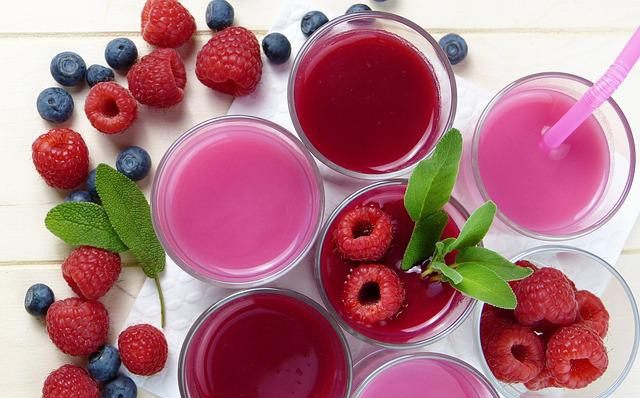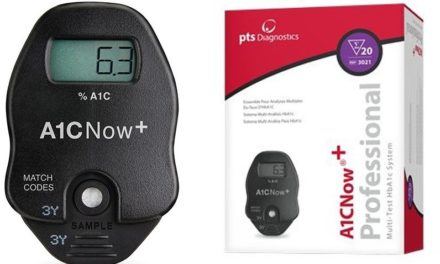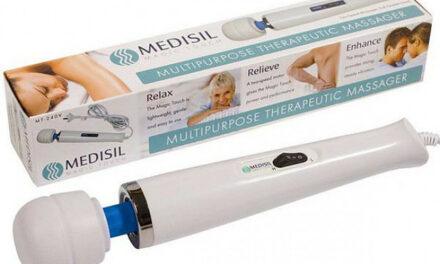Here we are going to cover everything you need to know about vitamin drinks and ageing. Particularly, we look at the best vitamin drinks for the elderly and what you need to be mindful of before considering them. In other words, the good and the bad of vitamin drinks… And, in the end, we will list the top 7 best vitamins for the elderly.
As we age, we may not always get enough nutrients’ from food alone. However, probably by taking certain vitamin drinks or supplements, such as B6, B12 and folate, we can overcome this challenge.
Out of the 13 different vitamins, vitamin D, B6, B9, and B12 are termed very needful for the elderly.
The elderly are usually at risk of becoming deficient in certain nutrients’ such as Vitamin B12 and calcium, which might pose more health risks. Their strength has diminished, and they may not find it easy to swallow whole food – a condition known as dysphagia which, according to research, affects an estimated 15% of the elderly population, making it difficult to swallow food while eating.
Also, as people age, there is an overall loss of appetite, and they may not get the required amount of calories and nutrients’ from the little portion they might have consumed.
Vitamins and minerals are considered essential nutrients’ as they perform a lot of roles in the body. They help to convert food into energy, repair cellular damage, heal wounds, and strengthen the bone and immune system.
Some elderly people may prefer to take vitamin drinks because it’s easy to use, tastes nice and are mostly very accessible, while some use these drinks to replace meals. Though “less filling ”, they are absolutely better than not having a proper meal.
There are many research studies on vitamins and vitamin drinks for the elderly, as they are one of the classes of food supplements required for healthy living as you age. However, before digging into the conclusions of those studies, let’s define vitamin drinks first…
Shall we?
What is a Vitamin Drink?
Vitamin drink is a nutritious drink that contains vitamins and minerals. They are available in a wide variety of flavours as drinks, juice or powder.
These vitamin-enhanced drinks, could be referred to as beverages that have been mixed with refreshing flavours and powders containing vitamins (e.g. A, B, C, D, and E), and in some cases, mineral drinks (e.g. magnesium or zinc).
Most vitamin drinks are intended to provide a healthy balance of high-quality nutrients’, vitamins, minerals and calories, which the elderly people might also benefit from for a healthier retirement.
You and your loved ones can add vitamins, minerals, and other healthy substances to your body by drinking such vitamin drinks.
Although Vitamin drinks are promoted as ‘healthy’ and consuming them can help keep you hydrated throughout the day too. However, some brands of vitamin drinks are loaded with added sugar, which can be unhealthy when consumed in excess.
Supplemental Nutrition Drinks Vs. Protein Drinks Vs. Vitamin Drinks
In addition to vitamin drinks, seniors can also take supplemental nutrition drinks and protein drinks.
These drinks are different from each other, but they are helpful in providing nutrients’, especially for those who experience;
- Loss of appetite,
- Difficulty in chewing,
- A need to fill up nutritional gaps in their diet, or
- A difficulty in preparing a balanced meal.
Let’s summarise the differences between Supplemental Nutrition Drinks Vs. Protein Drinks Vs. Vitamin Drinks in a table.
|
Supplemental nutrition drinks |
Protein drinks |
Vitamin drinks |
| Used as a meal replacement in hospitals and aged care homes to help nourish those who may be eating poorly and have lost weight due to illness or lack of appetite. |
Usually best packaged for the elderly as liquid or powder to be reconstituted. |
Vitamin enhanced drinks |
|
Contain carbohydrates, fats, protein, and added vitamins and minerals. Some may also contain fiber. |
Contain proteins and other nutrients’ for maintaining muscle, bone, and immune system, health and strength. |
Meant for vitamin supplementation. |
|
Higher in calories. |
They are higher in protein content. |
Have higher vitamin content. |
|
Focus on gaining weight |
Focus on building muscle. |
Focus on maintaining lean muscle mass and keeping the immune system in working order. |
Now let’s explore the differences between meal replacements and supplementation.
Meal Replacement vs. Supplementation – What is The Difference?
|
Meal replacement |
Supplementation |
| Meal replacements are taken as a substitute for solid food, usually with controlled quantities of calories and nutrients’. |
Supplementation is the addition of an extra nutritional supplement to your diet to make up for a deficiency. |
|
Intended to substitute one or two meals from your daily diet. |
Intended to be taken alongside other foods, to supplement a regular diet, not to replace a meal. |
|
They could be a drink, soup and bar. They can also be in powdered form or pre-mixed. |
It could be in a vitamin, herbal extract or chemical compound ingested to meet dietary deficiencies or enhance muscular development. |
|
Meant to provide total nutrition for one meal. |
Meant to ensure that you get enough of the vital substances the body needs to function, help reduce the risk of disease, help protect your organs, nervous system, and skin, and allowing you to look great. |
|
The main appeal of a meal replacement supplement is convenience. They are more filling and contain more calories and more carbohydrates. |
Not filling – They are mainly to minimize the likelihood of nutritional deficiency. |
|
Most contain Plant-based proteins – like soy. They are usually fortified with vitamins and minerals. Some also contain dietary fibre to help manage hunger and appetite. |
Mainly contain added vitamins and minerals. |
Should The Elderly Have Vitamin Drinks?
The elderly may experience a loss of appetite, which can reduce the amount and type of food they eat. This can lead to weight loss. And, the loss of appetite is linked to an increased risk of malnutrition too.
Consequently, it could sometimes be hard to get enough vitamins. For example, it would be literally impossible to get vitamin D from food alone, especially for older adults who need it in higher amounts.
An older adult may have vitamin drinks to help prevent dehydration. Drinking enough water and similar fluid-like vitamin drink helps with all bodily processes and might even help build up an appetite. It helps to maintain the urinary system and prevent the likelihood of kidney disease, although if there’s a background cause, this may not be the case.
Vitamin drinks may be taken as a snack since they aren’t very good at satiating appetite. Using these drinks as a reward for eating a meal earlier in the day, can be a nice way to help elderly people avoid repetitive patterns that can cause depression after long periods of time.
In other words, the elderly are permitted to have certain brands of vitamin drinks, especially those with low sugar content, to meet up with their nutritional needs.
However, to effectively consume vitamin drinks and avoid any health issues, it’s important they visit an elder care professional (e.g. geriatrician), a licensed dietician or a physician before settling on such a diet plan.
Some vitamins such as vitamin C and Vitamin E, may help to lower the risk of cardiovascular disease too.
Characteristics Of A Good Vitamin Drink For The Elderly
It is easier to characterize a vitamin drink as good for the elderly by considering the needs of the person. For instance, if an elder wants to gain or maintain weight, he or she should be looking for a higher-calorie vitamin drink.
But, before rushing off to stock up on vitamin drinks, you also need to understand that adding essential vitamins and minerals can interact with an elderly person is quite different from how it does with a younger person. That is, considering allergies, intolerances, and also the potential negative effects of too much sugar or artificial ingredients contain in most vitamin drinks.
Before classifying a vitamin drink to be good or bad for an elderly, there are aspects you need to look out for, such as;
- If the elder has any dietary needs or any lifestyle preferences
- If the drinks are being used as a booster (either for calories or nutrition), or as a meal replacement
for those who have difficulty with solid foods.
The following are some qualities of a good vitamin drink.
- It should have a good, refreshing taste and be easy to use.
- Should be of high-quality product that will serve you well for a range of purposes.
- It should be made to minimize blood sugar spikes.
- A good vitamin drink should be convenient and effective. This means that it should be easily found in grocery stores and designed to meet goals such as boosting calories and nutrition.
- Aims to correct a nutrient deficiency, improve the nutrient status, boost the body’s defence and reduce disease risks.
- It can be an alternative for lactose-intolerant people or people who do not take milk products.
Dangers, Risks and Cautions
The following are the dangers and risks of taking vitamin drinks and the cautions you need to take:
- May be packed with sugar
Some vitamin drinks may contain an unreasonably high amount of sugar.
This can elevate your blood sugar levels and cause obesity. And if you are diabetic, it can increase insulin resistance and worsen your condition.
- Weight gain
Vitamin drinks can cause weight gain.
A study published in the World Journal of Diabetes has revealed that excess vitamin intake can result in obesity.
- Health problems
Over-reliance on vitamin drinks may cause diarrhoea and lead to harmful health problems related to obesity, high blood pressure and kidney disease.
- Taking excess vitamins may cause you more harm than good
Taking vitamin drinks may result in overdosing on some vitamins, which will not provide any additional benefits. Instead, overdosing on some vitamins have its own side effects.
For instance, too much vitamin A can cause headaches, and liver damage and reduce bone strength. Too much vitamin C or zinc could cause nausea, diarrhea, and stomach cramps.
- May increase the chance of death
According to research, a high dose of vitamins A and C can increase the risk of premature death.
- May interact with medications
Most seniors take prescribed or over-the-counter routine drugs, vitamins and supplements. In addition to that, consuming vitamin drinks regularly may affect the efficiency of the medication.
However, to minimize any risk involved with taking too much vitamin drinks, try to do the following…
- Cut down on the intake of vitamin drinks
- Drink more water to stay hydrated
- Eat more fresh vegetables and fruits
- You can prepare your own homemade fruit juice and smoothies with no added sugar.
- Consult your dietitian or physician to suggest the type and quantity of vitamin drink you need to consume daily.
7 Best Vitamin Drink For The Elderly
When choosing the best vitamin drink for the elderly, we can’t ignore some vitamin drinks (both those in liquid form or powdered – to be reconstituted). They are supplements usually fortified with the vitamins and minerals that elders need most and have difficulty getting from their normal diet.
Another idea considered here involves, looking at the characteristics of a good vitamin drink, the nutrients’ specification by manufacturers, ensuring that their products do not contain contaminants or impurities, are properly labeled, and contain what they claim.
We recommend the following for the elderly; however, you must seek professional advice to make sure they are suitable for you.
1. Bodyarmor Sports Drink

Available in Strawberry & Banana Natural Flavors With Vitamins, Potassium-Packed Electrolytes & No Preservatives.
It contains 10% coconut water.
Pros:
- It contains natural flavours & sweeteners
- No colours from artificial sources
- Delivers an immediate, revitalizing burst of energy.
Cons:
- This product is labelled to United States standards and may differ in its ingredients from similar products sold elsewhere.
- It is not intended to treat, cure, or prevent any disease or health condition.
2. Drink Ade

Boost Hydration & Recovery Drink is with Electrolytes, Vitamin B and Milk Thistle for Energy. It contains aloe vera, B vitamins, and green tea extract.
Pros:
- It helps in keeping you hydrated.
- No sugar, carbs or caffeine. Soy-free and lactose-free.
- Help to boost your energy and is easy to use.
Cons:
- It doesn’t really taste great.
3. Propel Immune Support
It contains vitamin C, E, B6 and a few other nutrients’. These vitamin-enhanced drinks are sweetened with Acesulfame Potassium (aka Ace-K) and sucralose (aka Splenda).

Pros:
- It has lemon blackberry- and orange raspberry-flavoured options
- Consuming it will help you stay hydrated.
- It tastes nice.
- It contains zero sugar, zero carbs, zero calories, and zero fat.
Cons:
- It is comparably expensive.
4. Zipfizz: Healthy Energy Drink Mix

Zipfizz provides hydration with B12 and MultiVitamins. It is a Vitamin enhanced energy/sports mix loaded with Vitamins, antioxidants, and electrolytes.
Pros:
- Low carb and zero sugar.
- Great for traveling and has a great taste.
- Gluten-free.
- Provides enough hydration all in a single tube.
Cons:
- More than 3 tubes should not be taken per day.
- Never recommended for children, pregnant women, people sensitive to caffeine, or people with a health condition.
- Contents of mixed products are altered after some time under direct sunlight.
- Seal is easily broken.
- Some people complained about undissolved powder in sips of Zipfizz.
5. Pureboost Immune boost Energy Drink Mix

Immunity Supplement Scientifically formulated to help support your immune system.
It contains 28 pH-balanced vitamins, minerals, herbs & amino acids, including Elderberry, Vitamin C, B Vitamins, Zinc, Turmeric and Ginger.
Pros:
- No added sugar
- No preservatives, artificial flavours or colours.
Cons:
- You may experience stomach sensitivity when taken on an empty stomach.
6. Oxylent: 5-in-1 Multivitamin Powder Supplement Drink Mix

Sugar-free and effervescent for Easy Absorption of Vitamins, Minerals, Electrolytes and Antioxidants.
Mostly recommended for those who have difficulty digesting, are tired of swallowing pills, or are looking for a natural energy boost from pure nutrients’.
Pros:
- Comes in 3 delicious flavors to fit anyone’s tastes – Sparkling Blackberry, Mandarin and Berry.
- Well packaged and convenient to go out with.
- Made with the highest quality ingredients in their most absorbable form in order to deliver a product of unsurpassed quality and efficacy.
- Multivitamin brand with minerals, electrolytes, amino acids, and antioxidants.
Cons:
- The Mandarin flavour kind has been reported to have a terrible taste unlike what is specified on its pack.
7. EcoDrink: Complete Multivitamin Mix Drink

This berry-flavored multivitamin drink contains 28 vitamins, minerals and other nutrients’ to boost your nutrient intake, immune and cardiovascular system.
Pros:
- It provides a delicious and healthy alternative to hydrating.
- Gives you more electrolytes, antioxidants and nutrients’ with far fewer calories and no sugar or stimulants.
- Made with 100% natural flavour (natural berry flavour).
Cons:
- Not readily recommended to people with certain health conditions.
- Not suitable to be used for treating or preventing any disease or health condition.
Conclusion
As we get older, many factors make it harder to get the vitamins and minerals we need. With time, we eat less, and dental changes, including tooth loss and gum deterioration, may make it harder to eat certain types of foods too. In addition, aging can reduce the body’s ability to absorb key nutrients’ found in a balanced diet.
Under these circumstances, consuming vitamin drinks and supplements
are a great way to ensure you meet your nutritional needs. They’re easy to take and also readily available at most grocery stores.
Meanwhile, some experts agree that normal, healthy adults who eat a balanced diet have no need for vitamin drinks. For them, they aren’t an effective source for satisfying their nutritional needs.
But the same time, it is important to note that the elderly may not be receiving enough of vitamins such as vitamin E, vitamin K, vitamin A, calcium, vitamin D, folic acid and minerals like potassium from their meals. For the elderly, taking a daily vitamin drink doesn’t pose much risk, but it’s a good idea to talk to your doctor or a qualified healthcare provider before taking any dietary supplements, including vitamin drinks.










